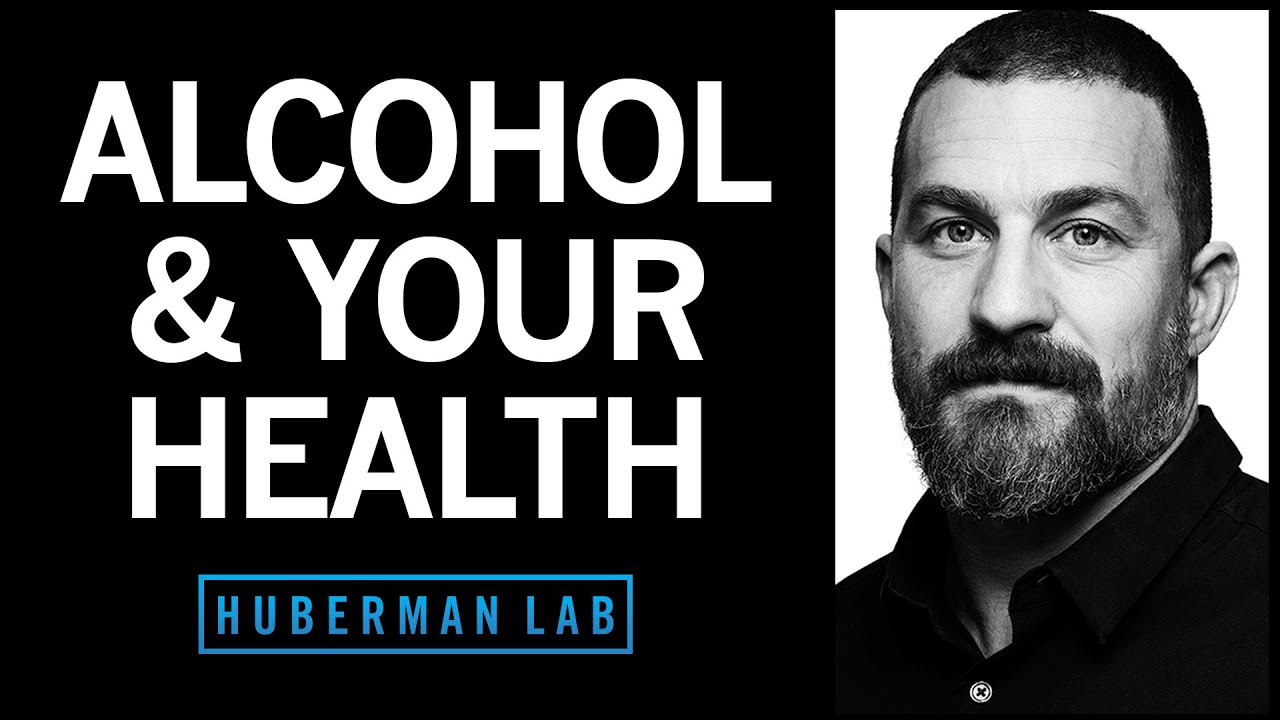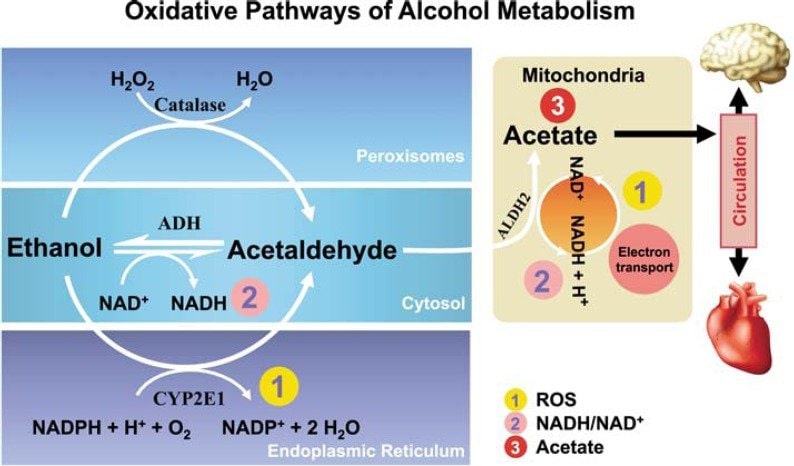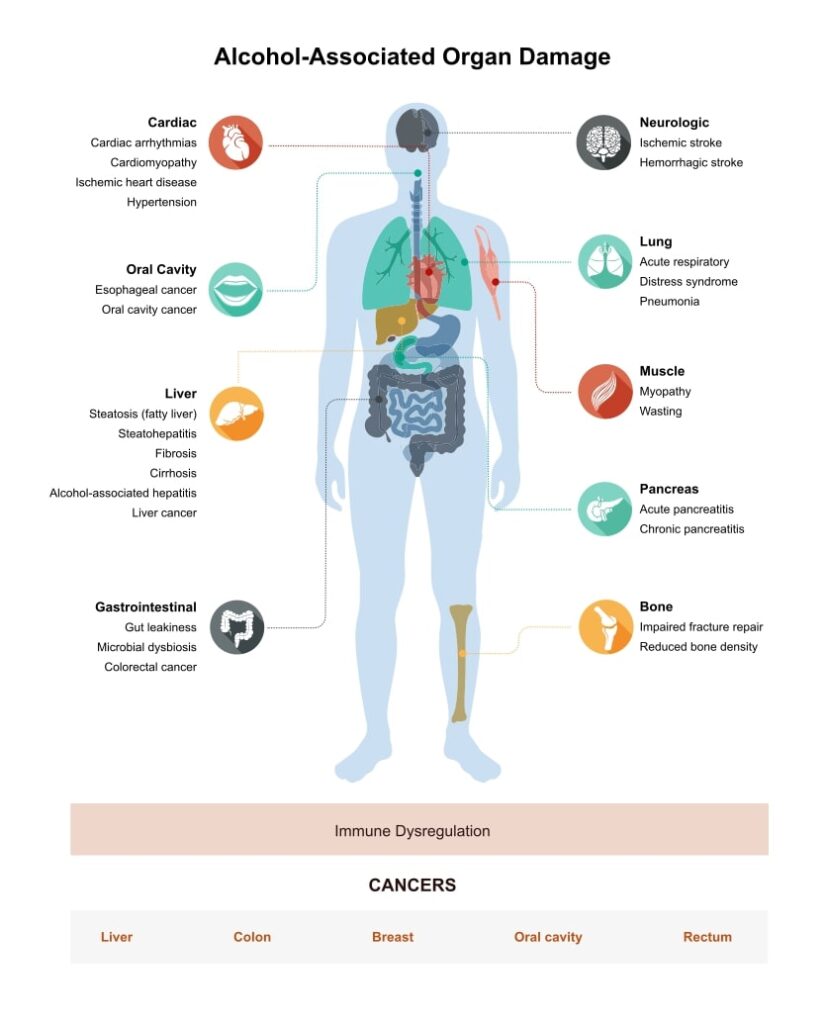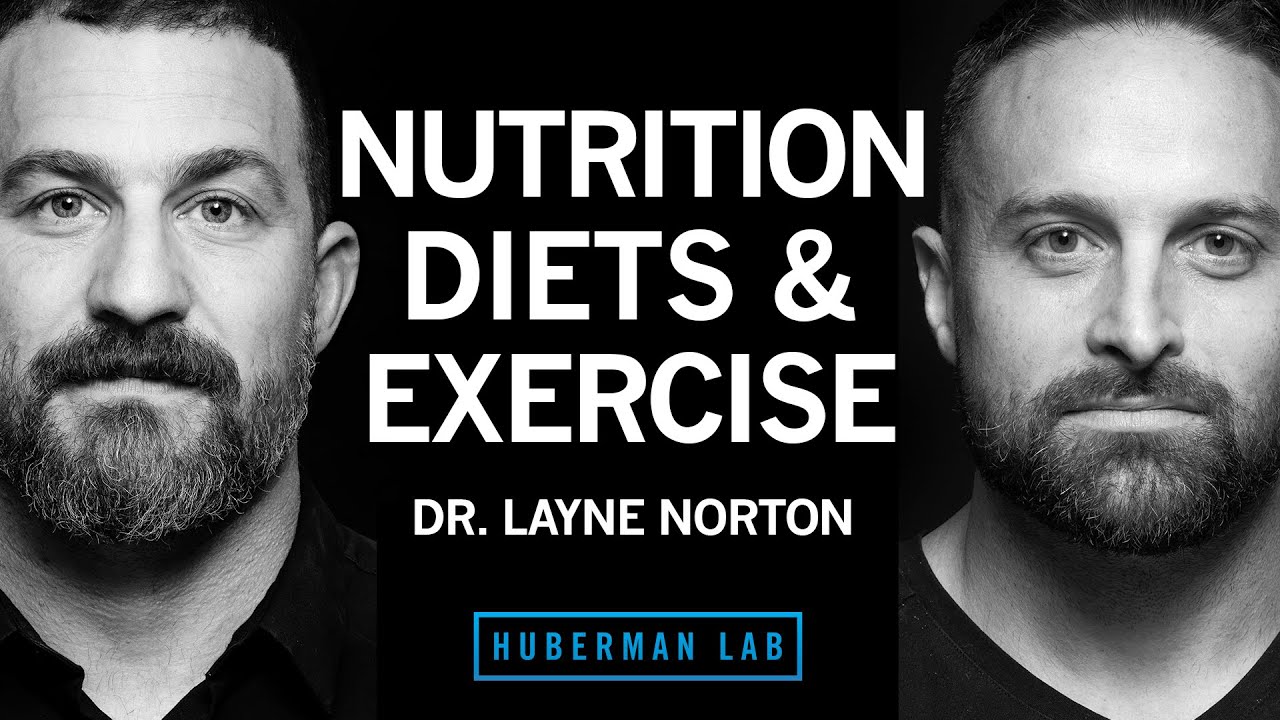- The ways in which alcohol navigates your body and causes significant damage to cells and organs over time.
- The effects of alcohol on neuronal functions such as thinking, planning, and impulse control, and its impact on mood and feelings of motivation.
- The causes, effects, and alternative remedies for hangovers, and why different types of alcoholic drinks can make you feel more or less hungover.
- How alcohol can increase the risk of cancer (especially breast cancer in women), leading to abnormal cell cycles and potential tumour growth.
- Why pregnant women should avoid alcohol entirely and the potential consequences of not doing so.
- How the age you start drinking predisposes you to alcoholism as much as your genes and the regularity/quantity with which you drink.
- The little-known relationship between alcohol, hormones, and gut microbiome balance.
What Alcohol Does to Your Body, Brain & Health
What Alcohol Does to Your Body, Brain & Health

- Focus on a healthy gut microbiome by consuming two to four servings of low-sugar fermented foods daily.
- If you drink regularly, consider changing your diet and exercising more to manage stress and anxiety, as chronic alcohol consumption can increase stress levels even when not drinking.
- Avoid taking non-steroid anti-inflammatory drugs (NSAIDs) for hangovers, as they can impact the liver and gut microbiome.
- Consider reducing or eliminating alcohol consumption to protect brain health and decrease cancer risk.
- Supplement with folate and B12 to partially offset the negative effects of alcohol on cancer risk.
- Be cautious about alcohol consumption during pregnancy, as it can cause fetal alcohol syndrome and harm the developing fetus.
- Drink water with electrolytes before, during, and after consuming alcohol to ensure they remain at a proper level and your brain and bodily organ function aren't too badly disrupted.
- Safely exposing yourself to cold temperatures — through cold showers or ice baths — accelerates alcohol metabolism and boosts adrenaline and dopamine,which can relieve the effects of hangovers.
What exactly is alcohol and how it affects our body
Alcohol has been around for centuries, with both humans and animals enjoying it for various reasons, including recreation and medicine. Some cultures even use alcohol for nutritional purposes, believing that the calories can be beneficial. So popular has it become that in several countries nowadays as many as 80% of the adult population drinks alcohol. But do you know what it truly does to your body and brain and health?
Alcohol comes in various types, but the only one fit for human consumption is ethyl alcohol — or ethanol. However, even this type is toxic and damaging to our cells. When we drink alcohol, our body needs to transform it into something less harmful. First, it converts ethanol into acetaldehyde, which, in the end, is even worse — it’s poison and kills cells. Our body then tries to convert acetaldehyde into acetate, a form of fuel, but this process produces more toxic molecules if not done efficiently. All this action takes place in our liver, and that’s why heavy drinkers often suffer from liver problems. The liver tries its best to handle the conversion process, but the cells still take a beating during alcohol metabolism events.
As alcohol is both water-soluble and fat-soluble, it can pass through all the cells and tissues in our body, directly affecting them. Our brain is particularly susceptible, and alcohol tends to attack parts responsible for thinking and behaviour. After just one or two drinks, the activity of neurons in the prefrontal cortex decreases, affecting our impulse control and decision-making. Ever noticed how people’s voices get louder at a party after a few drinks? That’s because alcohol disrupts the brain’s ability to modulate speech levels.

Source: https://www.researchgate.net/figure/Oxidative-pathways-of-alcohol-metabolism-Alcohol-is-metabolized-mainly-in-the-cytosol-by_fig4_259209496
Hangovers, Tolerance & Other Dark Sides of Alcohol
Similarly, have you ever wondered why some people seem to handle alcohol better than others? Well, it turns out that regular drinkers or those with a genetic predisposition to alcoholism experience an increase in alertness and mood when they drink. On the other hand, occasional drinkers feel good for a shorter period and quickly transition to a tired state. This doesn’t mean that regular drinkers are better off. Quite the opposite. Tolerance occurs when the brain adapts to repeated alcohol use, leading to diminished positive effects and increased negative ones. People might drink more to chase that initial feeling of well-being, but this often leads to extended negative effects like pain and malaise.
One question that is probably lurking in everyone’s mind is, “What about hangovers?” We’ve all been there – the pounding headache, the nausea, and the feelings of anxiety. Hangovers occur due to various reasons – disrupted sleep, altered gut microbiome, depleted electrolytes, and changes in dopamine and serotonin levels. Thankfully, there are some remedies that may help. Deliberate cold exposure, like a cold shower, can raise adrenaline levels and reduce intoxication effects. Replenishing electrolytes and consuming fermented foods can also alleviate symptoms.
Another curious fact is that the type of alcoholic beverage you choose also impacts how bad of a hangover you get the next day. Sure, this already is the subject of many pub chats. But contrary to popular belief, it’s not sugary drinks that give the worst hangovers. Recent studies have found that congeners – a chemical substance that gives alcoholic drinks their distinctive flavour and is responsible for some of their inebriating effects – are the ones to blame. And whilst there are several other factors at play, here’s a heads-up: Brandy is at the top of the Worst Hangover List.

Source: https://ec.europa.eu/eurostat/statistics-explained/index.php?title=Alcohol_consumption_statistics
Still, just the fact that you’ve ingested alcohol can increase cortisol levels, leading to increased stress and anxiety when you’re not even drinking. Chronic alcohol consumption, even in low to moderate amounts, can damage the brain, causing a loss of neurons in critical areas like the neocortex. It can also mess with our hormones, especially the balance between testosterone and estrogen.
Unfortunately, the negative effects of alcohol don’t stop there. Studies have shown a relationship between alcohol intake and cancer risk, especially breast cancer in women. Alcohol messes with our DNA, leading to abnormal gene expression and potential tumour growth. That’s also why pregnant women should never consume alcohol, as it can cause severe harm to the developing fetus.
The same goes for young people. According to some studies, people who start drinking at younger ages are greatly predisposed to developing alcohol dependence – regardless of family history of alcoholism. Sure, some of them will become chronic drinkers because the genetic predisposition is very strong, or simply because life circumstances facilitated it. Still, it’s important to note: genes matter, but so does the age at which somebody starts drinking.

Source: https://www.niaaa.nih.gov/sites/default/themes/solstice/images/bodyeffects_05052022.svg
The Light at The End of The Tunnel
If you’re concerned about your alcohol consumption, there are steps you can take. Focus on gut health by consuming low-sugar fermented foods to replenish gut microbiota. Find ways to manage stress effectively, as alcohol can increase stress levels when you’re not drinking. Reducing alcohol intake, even if it’s just a few drinks a week, can be beneficial for your overall health.
Bottom line: Whilst alcohol may have some social and cultural significance, it’s essential to understand its potential dangers. At least that way you can make informed choices about your alcohol consumption and how it might impact your health and well-being.



